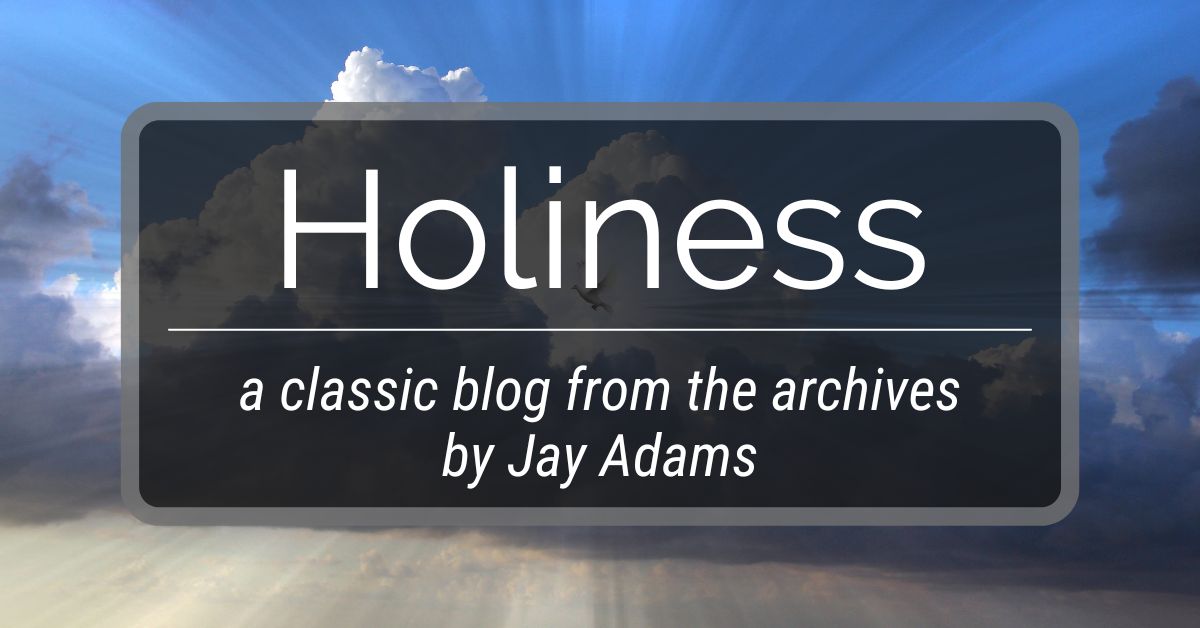Recently I read some thoughts by a biblical teacher regarding holiness. Much of what he had to say was not only interesting, but helpful. And it was truly biblical. There was, however, a section in which he spoke of having experiences—both for himself and others—that made the places where they occurred “holy ground.”
It is true that we all have places and experiences that particularly influence us by bringing back to our memories what happened, how we were affected by it, and so forth. But does that make it “holy” ground? Well, the answer depends.
To simply leave the phrase no further defined is troublesome. Yes, it is holy ground in the sense that it is special to us, but it is not holy in reference to God. Let me explain.
The word holy means “set apart.” When one experiences something moving, memorable, etc., at a given location, he may always have a sense of the fact when remembering or revisiting the scene. He may re-experience the feeling or sense he did on that first, memorable occasion: the place where he proposed to his wife, where he first heard the Gospel, or something else may bring back such memories and feelings. The place is special to him.
But not to differentiate that set-apartness of that ground is not the same as when God deems something holy. When Moses was at the burning bush, God spoke of holy ground and told Moses to remove his sandals. That was holy ground, par excellence!
There is a difference. A place may be holy ground (set apart) to God, or simply to man. Not to distinguish what God calls holy from what is set apart to us, is a serious mistake (surely unintended by the writer).
There were, in the Old Testament, three grades of holiness—the temple grounds; the holy place, and the Holy of holies. A Gentile dare not go beyond the first upon penalty of death. The priests could enter the second. The High Priest alone, but once every year, could enter the holy of Holies. That was holy ground.
But Christ’s death brought about a dramatic change. The curtain hiding the ark, the cherubim, and the Shekinah glory, was ripped apart, and access to the throne of grace, has been made available to all believers. That means that everything is set apart to God (Holy to Him) and ought, therefore, to be holy to us. Zechariah put it this way. He said that in our day you could cook a meal in utensils from the holy place! That in every sense of the holy in that pot or pan—or even in one of yours—would be holy. That is to say, all of life—everything within it—should be set apart to God. He has no more special holy places. The spots in Palestine where notable things happened are no more holy than any others. The Mount of Olives, may be special to you because of the feelings evoked by viewing it, but it is no more so to God—or should be to you—in any other sense, today.
Check out our online courses, including, Introduction to Nouthetic Counseling and The Use of Scripture in Counseling, taught by Jay Adams!
Books related to counseling others:
- Competent to Counsel by Jay Adams
- The Christian Counselor’s Manual by Jay Adams
- How to Help People Change by Jay Adams
- Check out our Bookstore for all the best counseling books!
The Christian Counselor’s New Testament and Proverbs, translated by Jay Adams
Visit our online bookstore for all your biblical counseling resource needs.
For more biblical counseling training, check out our list of INS Online Courses.
Follow INS on Social Media:
– Facebook: noutheticstudies
– Twitter: @noutheticstud
– Instagram: @noutheticstudies

